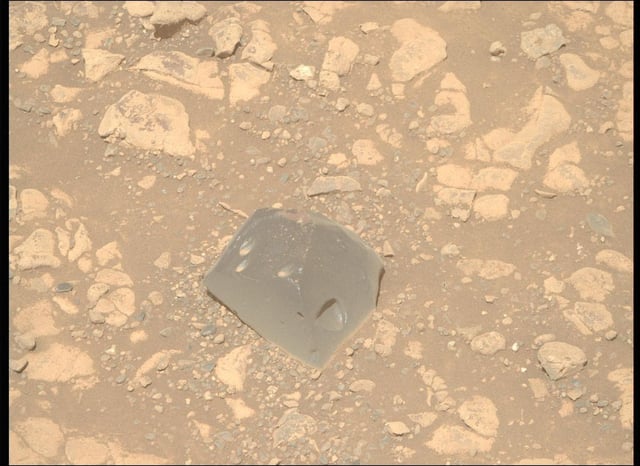Overview
- Perseverance rover discovered a distinctive dark-toned rock, named 'Skull Hill,' in the Port Anson region of Jezero Crater on April 21, 2025.
- Skull Hill is a float rock, meaning it was likely transported to its current location by natural processes such as impacts or erosion.
- Early chemical data from the SuperCam instrument indicates the rock's composition does not match typical iron-nickel meteorites previously found on Mars.
- Scientists are exploring alternative hypotheses, including that the rock may be igneous, formed from volcanic activity, or impact ejecta from an ancient event.
- Further data collection is ongoing as researchers aim to determine Skull Hill's origin and its implications for understanding Mars' geological history.
